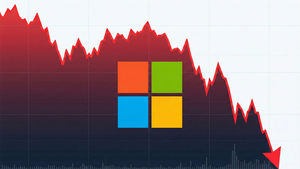
The high-tech landscape is witnessing a profound shift towards strategic alliances and consortia, recognizing that no single entity can navigate the complexities of cutting-edge technological development alone. A prime example of this collaborative imperative is the Quantum Scaling Alliance (QSA), a global initiative launched by Hewlett Packard Enterprise (NYSE: HPE) and a consortium of seven other prominent technology organizations in November 2025. This alliance is envisioned as a "full-stack, horizontally integrated solution" designed to accelerate the transition of quantum computing from initial proof-of-principle demonstrations to large-scale, industry-level applications. Co-led by Dr. Masoud Mohseni from HPE Labs and John Martinis, a 2025 Nobel Laureate and co-founder/CTO at Qolab, the QSA aims to develop a cost-effective and practically useful quantum supercomputer by seamlessly integrating it with existing supercomputing (HPC) and semiconductor infrastructure.
Unpacking the Technical Blueprint: A Horizontally Integrated Leap
The Quantum Scaling Alliance's technical vision is ambitious and comprehensive, focusing on integrating diverse expertise across the entire quantum computing stack. Key technical capabilities and areas of focus include qubit and circuit design (Qolab), hybrid quantum-classical control (Quantum Machines), and crucial quantum error correction (Riverlane and 1QBit). The alliance also heavily leverages the existing semiconductor ecosystem, with Applied Materials, Inc. (NASDAQ: AMAT) contributing materials engineering and semiconductor fabrication expertise, and Synopsys (NASDAQ: SNPS) providing simulation, analysis technology, Electronic Design Automation (EDA) tools, and semiconductor IP. Hewlett Packard Enterprise (NYSE: HPE) spearheads the full-stack quantum-HPC integration and software development, while the University of Wisconsin contributes to algorithms and benchmarks.
This "full-stack, horizontally integrated solution" approach marks a significant departure from previous quantum computing development methods. Historically, quantum chip production has been characterized by "artisanal" methods and "isolated breakthroughs" from small, vertically integrated teams. The QSA, by contrast, is a "large partnership with horizontal integration," explicitly aligning quantum innovation with the mature semiconductor and HPC industries. This collaborative model is designed to overcome scalability bottlenecks by pooling resources to tackle complex, systemic challenges that no single entity could resolve alone. The long-term goal is to transition quantum chip production from bespoke craftsmanship to a "standard professional model" that utilizes sophisticated, mass-production tools already employed for conventional chips.
Initial reactions from the AI research community and industry experts have been overwhelmingly positive. John Martinis emphasized the alliance's potential to "transform industries" and enable breakthroughs in fields like semiconductor manufacturing and sustainable fertilizer production. Dr. Masoud Mohseni highlighted that quantum computing must scale through integration with classical supercomputing systems to achieve long-term viability, acknowledging the "completely new challenges" presented by scaling from hundreds to millions of qubits. The consensus is that this multi-organizational, integrated approach is crucial for moving quantum computing from laboratory demonstrations to practical, industry-scale applications, with some Google (NASDAQ: GOOGL) Quantum AI researchers also advocating for similar industry-academia alliances.
Corporate Impact and Competitive Repercussions
The Quantum Scaling Alliance is set to have a profound impact on its member companies and the broader tech landscape. Direct beneficiaries include Hewlett Packard Enterprise (NYSE: HPE), which solidifies its leadership in HPC and expands into the quantum sector. Other members like 1QBit, Applied Materials, Inc. (NASDAQ: AMAT), Qolab, Quantum Machines, Riverlane, Synopsys (NASDAQ: SNPS), and the University of Wisconsin gain a strategic platform to integrate their specialized expertise, accelerate R&D, and shape the future of quantum technology. Beyond the core members, industries such as drug discovery, materials science, logistics, finance, and cybersecurity are poised to benefit from the alliance's breakthroughs.
For major AI labs and tech companies not directly involved, such as IBM (NYSE: IBM), Microsoft (NASDAQ: MSFT), and Google (NASDAQ: GOOGL), the QSA introduces significant competitive implications. While these giants have made substantial progress in quantum research, their current systems are often built through more isolated, vertical approaches. The QSA's focus on mass-producible systems and standardized manufacturing could intensify the race for scalable quantum solutions and pressure non-member companies to adopt similar integrated strategies or risk falling behind in efficiency and cost-effectiveness.
The potential disruption to existing products and services is substantial. Quantum-enabled optimization could lead to unprecedented productivity gains and faster innovation cycles in finance, logistics, and drug discovery. The alliance's work promises breakthroughs in semiconductor optimization and quantum chemistry, potentially creating entirely new products and services while rendering some existing computationally-limited solutions obsolete. Furthermore, the advancement of quantum computing necessitates the development of "post-quantum security" solutions, disrupting current cybersecurity product lines and creating new demand for quantum-resistant cryptography. The QSA's members are strategically positioned to gain a first-mover advantage in scalable quantum, leveraging existing ecosystems and potentially establishing industry standards for integration and manufacturability.
Broader Significance in the AI Landscape
The Quantum Scaling Alliance is strategically positioned at the convergence of several major technological trends, profoundly influencing the future of AI and the broader tech landscape. Its commitment to hybrid quantum-classical computing aligns with the pragmatic recognition that quantum systems will augment, rather than replace, classical HPC. This integration is crucial for practical quantum AI applications, enabling more powerful AI algorithms for complex optimization and data analysis. The alliance's focus on industrializing quantum technology, moving from "artisanal prototypes to mass-producible systems" using standard chip-making tools, mirrors the trajectory of classical computing and AI hardware, where mass production made technology accessible and scalable.
The wider impacts are transformative, promising revolutionary advances in drug discovery, materials research, and financial modeling. By enabling the simulation of intrinsically quantum problems, the QSA will accelerate fundamental scientific discovery and foster a new era of computational power. Economically and geopolitically, breakthroughs in scalable quantum computing could reshape global power dynamics, providing significant competitive advantages. However, potential concerns include cybersecurity risks, as powerful quantum computers could threaten current encryption methods, necessitating a rapid transition to quantum-resistant cryptography—a challenge the QSA explicitly addresses. There are also concerns about a technological divide, as the immense cost and specialized expertise could exacerbate inequalities, and ethical implications regarding misuse and accountability will require careful consideration.
Comparing the QSA to previous AI milestones reveals a common theme: the shift from research to industrialization. Just as AI moved from theoretical concepts to widespread adoption with deep learning, the QSA aims to push quantum computing beyond "proof-of-principle demonstrations" to "industry-scale applications." Its strategy of leveraging existing HPC and semiconductor infrastructure echoes deep learning's reliance on GPUs. The promise of solving "insurmountable problems" resonates with past AI breakthroughs that surpassed human-level performance in complex tasks. The QSA's "full-stack solution" approach, encompassing hardware, software, and algorithms, mirrors the comprehensive ecosystem development that underpinned modern AI's success, aiming to build a similar robust foundation for practical quantum computing.
The Horizon: Future Developments and Expert Predictions
In the near term, the Quantum Scaling Alliance will focus on collaborative research, prototyping, and testing of new hardware designs and algorithms, with an emphasis on demonstrating prototype systems that outperform classical counterparts for specific problems. The immediate goal is to align quantum innovation with existing semiconductor and HPC ecosystems. Long-term, the QSA aspires to lead the industry in transitioning quantum computing from laboratory experiments to commercial and industrial settings, delivering reliable and cost-efficient quantum computers for real-world tasks through mass production using standard chip manufacturing tools.
The broader quantum computing field will continue to see advancements in hybrid classical-quantum systems, improved qubit stability, and error correction techniques. Commercial quantum cloud services are expected to expand, increasing accessibility. Experts anticipate a "broad quantum advantage" between 2030 and 2040, where quantum computers consistently outperform classical ones for practical problems, with "full-scale fault tolerance" projected after 2040. The quantum computing market could grow to around $80 billion by 2035 or 2040, potentially adding $1.3 trillion in value across various industries.
Potential applications on the horizon are vast, including revolutionary drug discovery and materials science through accurate molecular simulations, accelerated AI and machine learning algorithms for complex datasets, and the development of quantum-secure encryption for cybersecurity. Quantum computing will also enhance financial modeling, logistics optimization, and manufacturing processes, leading to more efficient designs and operations. However, significant challenges remain, such as hardware limitations (qubit fragility, decoherence, and scaling to millions of qubits), the high overhead of error correction, the lack of mature software tools, integration hurdles with classical infrastructure, and a critical skills gap in quantum expertise.
Experts predict a continued convergence of quantum computing and AI, with hybrid quantum-AI systems impacting various fields. Quantum Error Correction (QEC) is seen as the "key that will unlock useful quantum computing," with significant progress expected in scalable error-correcting codes. The market is anticipated to mature in phases, with hybrid systems providing many practical applications in the near term. New qubit technologies, like diamond-based systems enabling room-temperature quantum computing, are also on the horizon. Ultimately, quantum computers are not expected to replace classical ones but will operate alongside them, addressing specific, complex problems. While a fully fault-tolerant quantum computer might still be a decade or two away, the trajectory is unmistakable, and challenges are steadily moving closer to resolution.
The Quantum Leap Forward: A Collaborative Future
The Quantum Scaling Alliance, launched in November 2025, marks a pivotal moment in the journey of quantum computing from theoretical promise to practical reality. This collaborative initiative, co-led by Hewlett Packard Enterprise (NYSE: HPE) and Nobel Laureate John Martinis, brings together a "full-stack" of expertise across quantum, HPC, and semiconductors to address the formidable challenges of scaling quantum technology. Its core mission is to develop cost-effective, scalable, and fault-tolerant quantum supercomputers by leveraging existing industrial infrastructure and fostering a horizontally integrated ecosystem.
The significance of the QSA extends deeply into the realm of AI. By unlocking unprecedented computational power for intrinsically quantum problems, the alliance is poised to accelerate AI development, particularly in complex optimization, advanced machine learning, and data analysis. Breakthroughs in quantum chemistry and materials science, enabled by the QSA, will directly impact the creation of more efficient AI hardware and advanced AI applications in drug discovery and healthcare. Furthermore, the alliance's focus on post-quantum security is critical for safeguarding future AI systems from emerging quantum threats. The QSA's approach mirrors historical AI milestones by shifting from pure research to industrialization and leveraging existing infrastructure to propel a nascent, transformative technology.
The long-term impact of the Quantum Scaling Alliance is expected to be monumental, potentially establishing quantum computing as a mainstream tool for competitive advantage across industries, driving scientific breakthroughs, and enhancing cybersecurity. Its emphasis on integration with classical systems ensures a smoother transition and wider adoption, setting a precedent for future multi-organizational efforts in cutting-edge fields.
In the coming weeks and months, the formation of alliances like the QSA signals a broader trend in high-tech industries towards increased cross-industry collaboration, particularly focused on AI and quantum integration. Watch for more outcome-driven partnerships that aim to overcome scalability bottlenecks and establish industry standards. These strategic alliances, driven by the need to tackle increasingly complex challenges, will be crucial indicators of how industries are collectively navigating the opportunities and complexities of next-generation technologies. The Quantum Scaling Alliance, with its ambitious goals and high-profile leadership, will be a key barometer for the pace and direction of quantum computing's commercialization.
This content is intended for informational purposes only and represents analysis of current AI developments.
TokenRing AI delivers enterprise-grade solutions for multi-agent AI workflow orchestration, AI-powered development tools, and seamless remote collaboration platforms.
For more information, visit https://www.tokenring.ai/.




